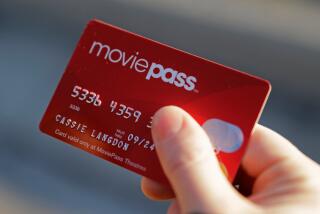Verizon Lawsuit Alleges Covad Falsified Reports on Problems
Launching another salvo in a bitter fight between phone carriers, Verizon Communications Inc. sued high-speed Internet service provider Covad Communications Group Inc., accusing the company of falsifying reports on service problems to shift blame to Verizon.
New York-based Verizon, the nation’s largest local phone company, filed the lawsuit late Monday in federal court in San Jose. The claim seeks an injunction against Covad, plus unspecified punitive damages and compensation for lost profit.
Covad, based in Santa Clara, Calif., issued a response denying the allegations and calling Verizon’s filing “a harassment suit” meant to muzzle the company’s persistent criticism of Verizon and to retaliate for Covad’s pending antitrust lawsuit against the company.
“This is an attempt to intimidate us and harass us,” said Dhruv Khanna, a Covad founder and the company’s general counsel. “Some of the claims are absolutely outrageous.”
The companies, although increasingly at odds in court and in regulatory matters, nonetheless are supposed to cooperate in the phone market. Covad sells high-speed connections using digital subscriber line technology, or DSL. But it cannot provide service to customers without first leasing copper lines and other network components from Verizon and the nation’s other local phone companies.
When things go wrong with DSL installations or service, consumers find that the companies frequently blame each other. Over the last few years, Covad has emerged as the loudest critic of the so-called Baby Bell phone companies, arguing in court and to regulators that service orders sent through Verizon, BellSouth, Pacific Bell and others encounter unreasonable problems and delays.
Verizon now says as many as 50% of the so-called trouble reports filed against the company by Covad are false or suspect. In the lawsuit, Verizon claims that Covad falsely blamed it for problems so that the local phone company’s reputation would suffer in the eyes of regulators and so that Verizon would have to spend the money and technician time to fix the reported service trouble.
Local phone companies such as Verizon need regulatory approval to win entry into the long-distance business in their home markets. As part of the review, Verizon and the others must prove that they are processing orders from rival phone companies as quickly and accurately as they do for their own retail customers. Negative testimony from rival phone companies can delay or derail those efforts.
In some cases, when local phone companies do not meet timeliness goals, they must compensate rival companies. Verizon said it has paid Covad $1.6 million in New York and Pennsylvania for such service deficiencies.
Covad shares fell 3 cents to close at 95 cents on Nasdaq. Verizon shares rose 54 cents to $54.35 on the New York Stock Exchange.






